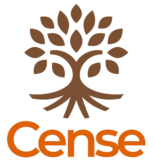
Cense’s Strategic Design Approach to Service Design
Cense Ltd. offers a distinctive approach to service design that integrates strategic design, design thinking, foresight, and evaluation to create transformative solutions for complex systems. This methodology is particularly suited for leaders navigating uncertainty in health and social sectors.
Core Elements of Our Approach
Strategic Design with Living Systems Focus
Our service design approach is anchored in strategic design principles that recognize the dynamic nature of living systems—people, teams, organizations, and communities. This lens acknowledges that interventions must preserve and protect health, wellbeing, and planetary sustainability while adapting to evolving contexts.
Phased and Progressive Development
We champion active consultation and iterative development through structured engagements:
- Knowledge and Program Review: We begin by thoroughly understanding the current state, reviewing existing research, and integrating emerging findings to establish a solid foundation.
- Service Mapping and Modeling: We develop comprehensive service maps that identify key touchpoints, behavioral factors, and intervention opportunities within the user journey.
- Progressive Prototyping: Using a “drip method,” we gradually evolve initial concepts into testable prototypes that can be refined through feedback.
- Implementation Support: We provide concrete guidance for putting solutions into practice, ensuring sustainability beyond the design phase.
As evidenced in our strategic planning and service design proposals, this creates multiple touchpoints for stakeholder input while respecting participants’ time and capacity.
Complexity-Informed Lens
Drawing from our expertise in behavioral psychology, systems thinking, and strategic foresight, our methodology is explicitly designed for complexity:
- Adaptive Planning: Creating frameworks that provide clear direction while remaining responsive to disruptive forces
- Systems Orientation: Recognizing interdependencies between organizations and partners in the ecosystem
- Resilience Building: Strengthening capacity to navigate uncertainty and volatility
- Assumption Testing: Identifying and challenging underlying assumptions to ensure solutions address root causes
Evaluation Integrated Throughout
With credentialed evaluation expertise, we embed evaluation principles from inception to implementation:
- Learning Systems Support: Building feedback mechanisms that enable continuous adaptation
- Measurable Success Indicators: Establishing clear metrics while honoring complexity
- Evidence Generation: Using robust data to inform decision-making and track progress
- User Validation: Testing solutions with actual users in real contexts to ensure effectiveness
Distinctive Features
What distinguishes our approach is its blend of rigor and practicality:
- Active Consultation: We engage stakeholders meaningfully throughout the process, using strategic “sprint” methodologies and micro-consultations to build ownership while respecting time constraints.
- Dual Focus on Inspiration and Function: Creating plans and services that are simultaneously aspirational and immediately actionable—functional, inspirational, pragmatic, and adaptive.
- “Telling the Story While Writing It”: Using the design process itself as an engagement and capacity-building opportunity, strengthening organizational capacity through participation.
- Implementation Pathways: Moving beyond recommendations to provide concrete implementation guidance with clear timelines and deliverables.
- Balance of Structure and Flexibility: Providing enough structure to guide action while remaining adaptable to context changes and emergent opportunities.
Applications and Impact
This methodology has proven particularly effective in contexts facing significant transformation, as seen in our work helping public health departments transition from pandemic emergency operations and designing more effective cancer support services. Our approach honors the lived experience of participants while introducing innovative frameworks that expand possibilities for action.
By integrating these elements, Cense’s service design approach equips leaders with both the strategic vision and practical tools needed to navigate complexity while creating meaningful, sustainable change in their organizations and communities. We deliver not just recommendations but implementable solutions that can evolve with changing contexts and needs.

